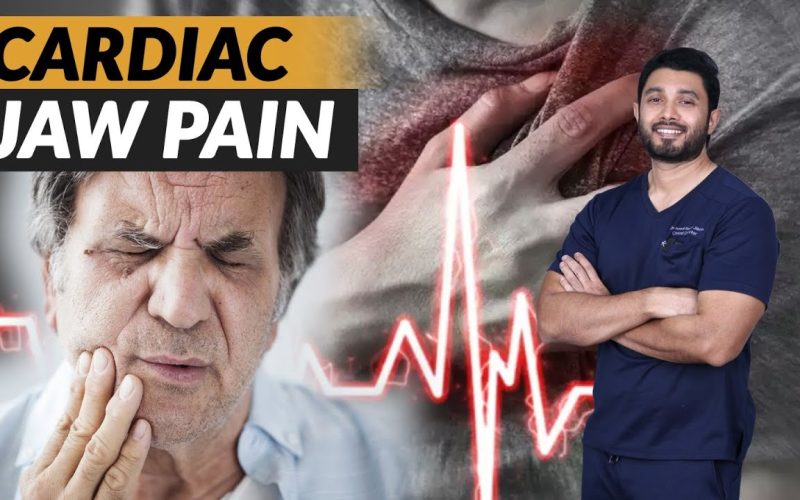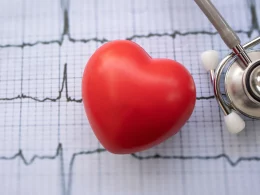Introduction
Experiencing chest pain and jaw pain simultaneously can be a cause for concern, often raising questions about potential heart-related issues. However, these symptoms may also stem from various unrelated causes. In this detailed exploration, we delve into the diverse factors contributing to combined chest and jaw pain, shedding light on cardiovascular problems and other sources of discomfort.
Chest and jaw pain can feel alarming. These symptoms may signal a serious health issue or something less severe. Understanding chest and jaw pain causes helps you know when to stay calm and when to get urgent care. In this guide, we explain common reasons behind jaw pain and chest pain, such as heart problems, muscle strain, and even stress. We use simple words and clear examples so you can follow along easily. By the end, you will know key signs of heart attack symptoms, other possible causes, and when to call a doctor. Let’s explore what might be behind your pain.
Cardiovascular Problems
1. Heart Attack
- A heart attack arises from a lack of blood supply to the heart.
- Symptoms include chest pain, pressure, or tightness, often radiating to the arms, neck, jaw, or back.
- Immediate response is crucial, involving dialing 911, performing chest compressions, and using an automatic external defibrillator (AED).
2. Angina
- Angina manifests as chest pain due to insufficient oxygen-rich blood supply to the heart.
- Characteristics include a squeezing sensation in the chest, with pain potentially radiating to the back, shoulders, arms, neck, and jaw.
- Additional symptoms, such as shortness of breath and fatigue, may be present.
Other Causes of Chest Pain
1. Heartburn and Acid Reflux
- Heartburn, a result of acid reflux, leads to a burning sensation in the chest.
- Pain may radiate to the throat, neck, or jaw.
- Symptoms also encompass bad breath, hoarse voice, cough, and bloating.
2. Panic Attacks
- A symptom of panic disorder, panic attacks can cause chest pain, heart palpitations, and shortness of breath.
- Intense fear characterizes these episodes, often accompanied by physical symptoms.
3. Intercostal Muscle Strains
- Musculoskeletal chest pain can result from intercostal muscle strains.
- Injury or overuse can cause pain or tenderness, exacerbated by deep breathing or coughing.
Dental and Jaw Disorders
Problems in the mouth can send pain to the chest through shared nerve pathways.
-
Temporomandibular Joint (TMJ) Disorder: TMJ issues cause jaw pain, clicking, and difficulty chewing. Sometimes, the pain spreads to the ear, face, or even upper chest.
-
Tooth Infections: Severe tooth pain or abscess can radiate along nerves into the jaw and chest area.
-
Bruxism (Teeth Grinding): Grinding teeth at night strains jaw muscles and can lead to headaches, ear pain, and chest tightness from stress-induced muscle tension.
Good dental care and mouthguards can ease TMJ pain. If you suspect an infection, see a dentist for antibiotics and treatment.
Other Causes of Jaw Pain
1. Temporomandibular Disorders (TMDs)
- TMDs affect jaw joints and muscles, leading to pain and dysfunction.
- Symptoms include jaw pain, stiffness, clicking, and changes in jaw movement.
- Some cases may be linked to jaw injury.
2. Trigeminal Neuralgia (TN)
- TN presents as severe stabbing or shock-like pain in the lower face and jaw.
- Initial attacks may be short and mild but can intensify over time.
- Pain types include sharp, burning, throbbing, and sporadic.
3. Dental Issues
- Tooth decay, tooth abscess, and teeth grinding can cause jaw pain.
- These dental problems may radiate discomfort to the jaw.
Prevention and Management
You can reduce your risk of chest and jaw pain with healthy habits:
- Stay Active: Regular exercise strengthens heart and muscles.
- Eat a Balanced Diet: Include fruits, vegetables, lean proteins, and whole grains.
- Manage Stress: Practice relaxation techniques daily.
- Mind Your Posture: Keep shoulders back and head up to ease muscle strain.
- Avoid Tobacco and Limit Alcohol: These raise heart disease and reflux risk.
- Regular Checkups: Monitor blood pressure, cholesterol, and dental health.
Small changes make a big difference. Healthy choices protect your heart, muscles, and nerves.
Diagnosis and When to Contact a Doctor
1. Diagnostic Procedures
- In nonemergency situations, diagnostic procedures involve a physical examination and an inquiry into symptoms and risk factors.
- Diagnostic tests, including EKG, blood tests, and heart imaging, help identify heart-related issues.
2. When to Contact a Doctor
- Immediate medical attention is imperative for heart attack symptoms.
- Individuals with chest and jaw pain and risk factors for heart disease should consult a doctor.
- Diagnostic tests and preventive measures can be recommended to mitigate heart attack risks.
3. When to See a Doctor
Chest and jaw pain can be serious. Seek immediate medical help if you have:
- Crushing chest pain, pressure, or tightness
- Pain spreading to your jaw, left arm, back, or neck
- Shortness of breath, sweating, or nausea
- Fainting or dizziness
For less urgent but persistent pain, book a doctor’s appointment if you experience:
- Pain lasting more than a few days
- Pain that awakens you at night
- Difficulty swallowing or severe heartburn
- New or worsening pain with movement
Early diagnosis helps prevent complications. Always err on the side of caution with chest pain.
Conclusion
In Conclusion, combined chest and jaw pain can serve as a potential indicator of heart-related problems or stem from a variety of unrelated causes. Recognizing symptoms and understanding the diverse sources of discomfort are essential for prompt medical intervention. Whether cardiovascular issues, musculoskeletal strains, or dental concerns, seeking professional advice is crucial for accurate diagnosis and appropriate management. Individuals with risk factors for heart disease or concerns about their heart health should proactively consult a healthcare professional for personalized guidance and comprehensive care.










